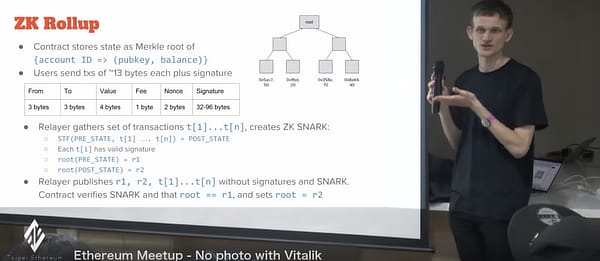2018-11-1 04:15 |
Smart contracts are fast becoming one of the most in-demand features of blockchain technology. The benefits are huge and its applicability, almost endless.
They can be used for everything from legal contracts to funds release from an escrow account and even regular daily events like locking a defaulting tenant out of an apartment. This is why there’s a lot of buzz around this feature.
With smart contracts in place, many redundancies will be eliminated as will red tape. For instance, instead of going to a pharmacy to fill your subscription, you can set up a smart contract rule that automatically notifies your pharmacist, who will then fill the subscription and send you an SMS that you your refills are ready to be picked up. There’s really no limit to what smart contracts are capable of.
Blockchain Based Smart Contract ProjectsLet’s take a quick look at the more popular blockchain based smart contract projects that are available for private and public use:
EthereumCurrently the most popular smart contracts platform, Ethereum is leading the pack when it comes to this technology. The platform’s core function is based on making the creation and deployment of smart contracts incredibly easy for developers and regular folks.
This is why it has the largest number of smart contracts developers consistently coding and building new smart contracts on the platform. This is not surprising seeing as it’s an open source public project that allows just about anyone come in and develop theirs, without anyone’s permission. This makes ethereum the cheapest and best platform to do this.
Most smart contracts on the ethereum platform are based on the ERC20 standard. This is the most commonly known standard on the platform as evidenced from the sheer number of ERC20 tokens created on the platform.
In fact, most ICOs and crypto tokens created on this platform are ERC20 compliant. However, because of its ease of creation and use, we have seen the standard bastardized by individuals with less than honorable intent, who use the platform to create scam tokens and cryptos.
While the community is doing all it can to educate people, the permission-less nature of the platform makes it almost impossible to vet all tokens and cryptos created on the platform.
CordaCorda is not as popular as ethereum because it’s a private smart contracts platform specifically created to execute smart contracts and agreements between a small group of trusted validators. Contracts created on this platform are done using Kotlin.
This makes the platform home to a wide array of tools that can help you create smart contracts as you please. Unfortunately, this is not open to the public at the time of writing this article. Most users on the platform belong to a group of entities who already have a prearranged agreement to use it and set up a shared ledger system that will help facilitate the ease of doing business with each other.
Bitcoin CashA hard fork of bitcoin, this crypto project has enabled some of the smart contract features that bitcoin initially jettisoned. While it’s true that bitcoin used to have this function, the team decided to deactivate and disable it because they wanted bitcoin to serve just one purpose, instead of being a multifunctional cryptocurrency project.
Another reason it may have been disabled was to ensure bitcoins stability. However, after Bitcoin Cash broke off from bitcoin in 2017, they carried out two major upgrades to the chain, one of which was the reactivation of smart contracts feature.
Once this is fully deployed on the chain, it can create multiple layers of smart contracts, such that even the execution of one phase, can trigger other transactions.
StellarOften called a Ripple clone, Stellar has multiple functions, one of which is a less known smart contracts platform. While its smart contracts functionality isn’t as extensive as ethereum’s it is enough to get transactions going on the platform.
With the smart contracts on the Stellar platform, you can easily use transaction sequencing, time locked transactions and multisig escrow transactions that will facilitate joint entity crowdfunding and atomic swaps.
The only limitation it has so far, is the ability to independently execute smart contracts. It relies on a third party, usually in the form of trusted escrow accounts to do so. Of course, there’s the question of whether a platform that’s so reliant on third party escrow can be called a smart contracts platform.
Whatever the case, it has these features and may be further upgraded to have even more comprehensive and complex smart contracts capabilities.
Can These Smart Contract Platforms Handle Scalability?While these platforms have good smart contracts features, there’s a major concern about their abilities to effectively handle high volume transaction executions. This is a valid concern seeing as companies value reliability above all else.
It doesn’t matter if you have a great product, if they can’t rely on your product or service to deliver every time, they will look for other viable alternatives. That said, let’s explore each blockchain project’s ability to handle scalability issues, and high complexity smart contracts whilst still remaining stable.
CordaA private smart contracts platform, Corda has been known to perform at the same level as a multi-user database. This is probably easier for it because the user volume isn’t as huge and only include selected individuals.
Private blockchain platforms typically function very smoothly because the transaction volume on it can never be compared to that of a public blockchain platform like ethereum. So, this platform might be best for those businesses whose transaction volume ranges between 15 and 1,400 transactions per second.
EthereumThe most public and popular smart contracts platform, ethereum is currently working ardently to solve its scalability issues using tech like off-chain transactions and the like. While the scalability problems aren’t resolved yet, there might be a possible solution in the near future.
Ethereum’s scalability problems became obvious when Cryptokitties was launched and had so many transactions regarding it, that it slowed down the network’s speed of transaction. As a result, transactions that would hitherto go through in a few seconds, took hours to go through.
This is why ethereum is working hard at a permanent scalability solution that will allow it to grow as its transaction volume expands. So, while smart contracts are very easy to create on the ethereum blockchain, it doesn’t come without its attendant downsides like bugs and slower network.
However, once its scalability issues are resolved, ethereum projects that it might be able to successfully handle 24,000 transactions per second. This means 12 times faster than VISA which currently handles just 2,000 transactions per second.
Even better, it’ll make activities like crowdfunding incredibly easier to achieve through its smart contracts, which fosters transparency and accountability. Better still, transaction costs will be quite minimal, unlike many crowdfunding platforms that charge a sizable percentage all realized funds before remitting the rest to the beneficiaries.
Bitcoin CashBitcoin Cash seems to be the only cryptocurrency project that has its scalability issues sorted out. Courtesy of its special smart contracts scalability feature, it serves as a smart contract platform where users can host their own smart contracts.
It does this using a model reliant on a “permissionless subset of interested parties” for its smart contracts. Also known and referred to as second layer validation models, this is a pretty great feature that can be written in bitcoin scripts.
The key difference between BCH’s smart contract platform and ETH’s is that the former is only transparent to the parties involved, while the latter can be seen by everyone regardless of participation. Its ability to scale is directly tied to the blockchain. So, as long as the platform is able to comfortably scale – and it can- the smart contract scalability shouldn’t be a problem.
StellarWhile Stellar is consistently referred to as an upgrade of Ripple, it is clear that its ability to scale is somewhat similar to that of its parent blockchain.
Stellar’s scaling problems are tied to its blockchain data storage abilities. Once that is resolved, we might see a platform that will easily scale regardless of transaction volumes. It’s also battling with scaling while staying decentralized and the fact that it doesn’t have a native smart contract language.
It only functions using a somewhat complex involving time lock manipulations and transaction pre-signing to execute all smart contract commands.
As a result, it is limited in handling complex and high volume smart contract transactions. However, if the company were to develop a native smart contracts execution program or feature, it just might get the job done faster, and we might see a platform that truly works and handles scaling issues very well.
Blockchain Based Smart Contract Projects ConclusionSmart contracts are just at their infancy. With time, and more advanced scaling solutions, we will see a blockchain ecosystem that will transform the current landscape, making it incredibly easy for smart contracts to be easily integrated into modern and daily business or mundane activities.
Similar to Notcoin - Blum - Airdrops In 2024
High Performance Blockchain (HPB) на Currencies.ru
|
|




















